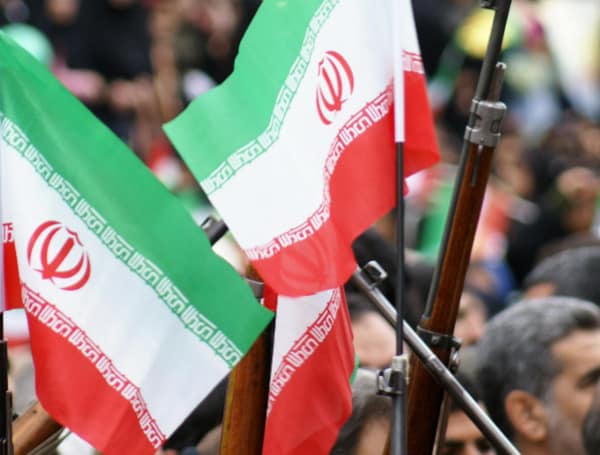The Trump administration has recently backtracked on its plan to curtail Iran’s nuclear ambitions, at first adopting an Obama-era view toward enrichment and then suddenly taking a zero-tolerance approach.
Up to this point, U.S Special Envoy Steve Witkoff has seemingly made contradicting public statements on the progress of negotiations with the Islamic Republic, backtracking an initial statement on April 15 that supported allowing Iran to enrich Uranium for civilian purposes with oversight. The sudden messaging shift, experts say, seems to suggest a larger conflict behind the scenes between hardliners who want a total dismantlement of Iran’s nuclear program and restraint-minded officials that prefer the diplomatic option with limited, monitored enrichment.
READ: Founder Of WEF Once Again Under Investigation By His Former Organization
“It’s the neoconservatives in the administration, people like Marco Rubio and people close to the president, like Lindsey Graham and Tom Cotton, are trying to steer him down a blind alley at the end of which is war with Iran,” Justin Logan, director of defense and foreign policy studies at the CATO Institute, told the Daily Caller News Foundation. “If you say our goal is to get zero enrichment in Iran, then you’re either going to let Iran get nuclear weapons or you’re going to go to war with Iran, or both.”
Witkoff initially tempered expectations on April 14 that the U.S. would pursue the total dismantling of Iran’s nuclear program, instead championing keeping Iran’s uranium enrichment within the civilian application standard of 3.67% purity. However, Witkoff walked back some of his remarks one day later, stressing that Iran cannot have any uranium enrichment. The State Department did not respond to the DCNF’s request for comment.
The mixed signals from Witkoff over just two days point to a wider conflict within the Trump administration between restraint-minded and more interventionist conservatives, experts told the DCNF.
READ: Laura Ingraham Clashes With Arizona Democrat Rep Over What ‘Process Is Due’ To Abrego Garcia
Sources within the administration told the New York Times that Trump was talked down from striking Iran militarily last month due to figures in his administration favoring diplomacy, including Vice President JD Vance, Defense Secretary Pete Hegseth and Director of National Intelligence Tulsi Gabbard among others.
The Joint Comprehensive Plan of Action (JCPOA) instituted under former President Barack Obama’s administration has long been criticized by conservatives, including Trump, for being too soft on Iran, including sunset provisions and lackluster oversight that allowed Iran’s nuclear pursuits to flourish.
Witkoff initially said any kind of sunset clauses for sanctions would be off the table in a nuclear deal, and any monitoring done by the International Atomic Energy Agency would be enhanced, according to the Jerusalem Post.
Some experts said Witkoff’s initial proposal bore striking similarities to the terms of the JCPOA.
READ: Deportation Debate: Numbers Vs. Criticism In Trump And Obama Eras
“This is the Obama JCPOA repackaged,” Mark Dubowitz, CEO of the Foundation for Defense of Democracies (FDD), told the Jerusalem Post regarding Witkoff’s initial comments on April 15. “Did we really leave it in 2018 just to return to it in 2025 – especially now, when we have maximum leverage? I’m curious how this version avoids the same fatal flaws that made the 2015 deal so dangerous.”
Under former President Joe Biden, Iran regained much of its economic strength from its oil reserves that it bled during Trump’s first term, raking in $37 billion in Iranian oil revenues in 2021, $54 billion in 2022 and $53 billion in 2023.
Additionally, Biden did not come to a deal to rein in Iran’s uranium enrichment, while declaring the JCPOA “dead” in 2022.
Some more restraint-minded conservatives are skeptical of the JCPOA comparison.
Those more hawkish on Iran often propose the “Libyan model” for dismantling Iran’s nuclear program. Libya, under Qaddafi, voluntarily gave up its entire nuclear program in 2003 in exchange for an end to U.S. sanctions.
Trita Parsi, executive vice president of the Quincy Institute for Responsible Statecraft and expert on U.S.-Iran relations, told the DCNF that comparisons to Obama’s deal is a useful tactic among interventionists to dissuade Trump from pursuing a diplomatic solution.
“I think there’s a desperation amongst those who wanted him to go down the path of the Israelis favor, to try to shame him into not pursuing the verification model,” Parsi told the DCNF. “It’s easier for them to try to make these arguments of claiming that this is too similar to Obama’s deal, and try to shade Trump away from that, rather than through the attraction of their own arguments.”
“I think it’s been just a feature of the administration on this issue in which at times, there’s been either imprecise or contradictory messaging, which may reflect that some of these issues have not been entirely settled inside the industry,” Parsi told the DCNF.
Please make a small donation to the Tampa Free Press to help sustain independent journalism. Your contribution enables us to continue delivering high-quality, local, and national news coverage.
Connect with us: Follow the Tampa Free Press on Facebook and Twitter for breaking news and updates.
Sign up: Subscribe to our free newsletter for a curated selection of top stories delivered straight to your inbox.

First published by the Daily Caller News Foundation.
